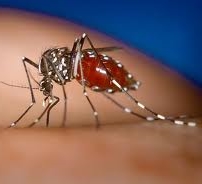Warning over first Caribbean cases of Chikungunya
 (CNS): A locally acquired outbreak of a virus carried by the Aedes Aegypti mosquito, which causes a dengue-like sickness, has been reported in the Caribbean for the first time. Cayman Islands public health officials said that the Caribbean Public Health Agency (CARPHA) has alerted regional health services of an outbreak of Chikungunya virus infection on the French side of the Caribbean Island of Saint Martin. There is no vaccine or treatment for Chikungunya, which has infected millions of people in Africa and Asia since the disease was first recorded in 1952.
(CNS): A locally acquired outbreak of a virus carried by the Aedes Aegypti mosquito, which causes a dengue-like sickness, has been reported in the Caribbean for the first time. Cayman Islands public health officials said that the Caribbean Public Health Agency (CARPHA) has alerted regional health services of an outbreak of Chikungunya virus infection on the French side of the Caribbean Island of Saint Martin. There is no vaccine or treatment for Chikungunya, which has infected millions of people in Africa and Asia since the disease was first recorded in 1952.
The sickness is common in India, countries in the Indian Ocean, Malaysia, Sri Lanka, Singapore and Indonesia. Imported cases have been recorded in the past in the Americas – in Brazil, Canada, French Guiana, Guadeloupe, Martinique and the United States of America. However, this is the first time locally-acquired cases of Chikungunya have been detected in the Caribbean.
Medical Officer of Health Dr Kiran Kumar said visitors to the Cayman Islands or returning residentsfrom the endemic countries who have fever and severe joint pains should consult a physician and advise of their travel history to enable them to assess and test for Chikungunya, which will be carried out at the Caribbean Public Health Agency (CARPHA) in Trinidad.
Symptoms include a sudden high fever, severe pain in the wrists, ankles or knuckles, muscle pain, headache, nausea and rash. Joint pain and stiffness are more common with Chikungunya than with dengue. The management of Chikungunya is symptomatic, similar to that of dengue. The symptoms appear between four to seven days after the bite of an infected mosquito. The majority of clinical signs and symptoms last three to 10 days, but joint pain may persist longer. Severe cases requiring hospitalization are rare.
Dr Bill Petrie, Director of the Mosquito Research and Control Unit, explained that the measures for controlling the spread of Chikungunya are the same of those applied for the control of dengue as both diseases are transmitted by the same mosquito, Aedes aegypti.
“The best way to protect yourself from the disease is to avoid mosquito bites and to prevent mosquitoes breeding in and around your home environment,” he added.
Category: Health

